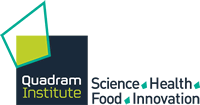Bacterial genomes have evolved over billions of year to allow efficient expression of the right genes at the right times and this is a carefully controlled process. It has recently become clear that the immediate genetic context of a gene is very important in determining how easily it is expressed. Experiments have shown that the same gene with the same promoter, placed in different locations around a bacterial chromosome can display very different levels of expression. The rules which govern this higher level if control of gene expression are not fully understood. This project aims to examine how position within a genome can affect gene expression, this will help us both understand how genomes work and evolve, and use this information to rationally design synthetic chromosomes to deliver optimised expression of important genes used in bioprocessing etc.
The project will compare expression of millions of copies of the same gene promoters placed in different locations in both Salmonella and E. coli - two related species which share some genome organisation but control gene expression differently. The project will make use of tools already developed to allow expression to be measured under different conditions, and will involve a mix of molecular microbiology, transcriptomics and informatics.
The student will join a large community of molecular microbiologists within the Quadram Institute in a brand new, purpose built building with state of the art facilities. The Quadram Institute is based on the Norwich Research Park - home to one of the largest groups of microbiologists in Europe and the student will join a large cohort of graduate researchers with exceptional training opportunities.
Informal enquiries can be sent to [Email Address Removed]
The Norwich Research Park (NRP) Biosciences Doctoral Training Programme (DTP) is offering fully-funded studentships for October 2022 entry. The programme offers postgraduates the opportunity to undertake a 4-year PhD research project whilst enhancing professional development and research skills through a comprehensive training programme. You will join a vibrant community of world-leading researchers. All NRPDTP students undertake a three-month professional internship placement (PIPS) during their study. The placement offers exciting and invaluable work experience designed to enhance professional development. Full support and advice will be provided by our Professional Internship team. Students with, or expecting to attain, at least an upper second class honours degree, or equivalent, are invited to apply.
Please note that all international awards have been made for our programme for 2022 entry so we will not be accepting applications from international candidates, as defined by UKRI’s International Eligibility criteria for UKRI funded studentships (Annex B).
This project has been shortlisted for funding by the NRPDTP. Shortlisted applicants will be interviewed on 27July 2022.
Visit our website for further information on eligibility and how to apply: https://biodtp.norwichresearchpark.ac.uk/
Our partners value diverse and inclusive work environments that are positive and supportive. Students are selected for admission without regard to gender, marital or civil partnership status, disability, race, nationality, ethnic origin, religion or belief, sexual orientation, age or social background.

 Continue with Facebook
Continue with Facebook



